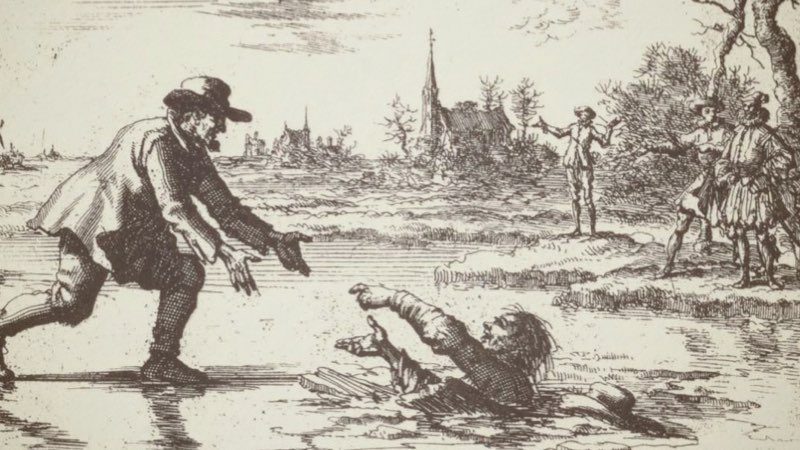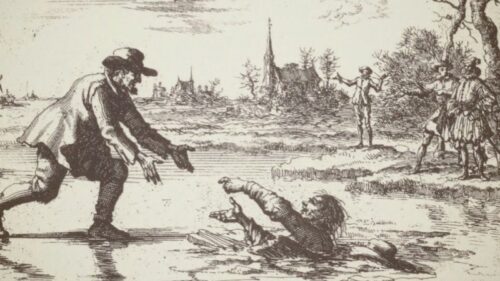-
Dispensations Of Disgrace
Some of the points covered in this sermon: • Providing a historic backdrop to Dispensationalism • Defining a ‘dispensation’ according to the signification of Scofield • Highlighting the first of two primary principles of interpretation which undergird the Dispensational framework—“rightly dividing the word of truth” • Explaining the basic fabric of the Dispensational framework—a timeline with eternal extensions, seven major events, seven major dispensations, seven major themes, seven major covenants • Distinguishing between the Dispensational and Calvinistic use of biblical language • Explaining how Dispensationalists have invented different plans of salvation • Showing why Dispensationalists sideline the first three dispensations • Showing why Dispensationalists focus on the fourth and fifth dispensations • Explaining the difference between Dispensationalism’s view of God’s “elect people” based on race,…
-
The Charismatic Movement
Some of the points covered in this sermon: • Underscoring the leading features of the Spirit baptism which restricts it to the three incidents recorded in Acts 2, 8 and 10 • Explaining why Acts 19, 1 Corinthians 12 and Titus 3 do not reference a Spirit baptism • Tracing the origin and development of the Charismatic Movement between the 18th and 20th centuries • Explaining the pivotal role the cultural revolution of the 1960’s played in the development of the Charismatic Movement • Explaining the doctrine of the Charismatic Movement, as it relates to Spirit baptism, speaking in new tongues, faith healing and the utterance of prophetic revelations • Explaining the role music plays in the Charismatic Movement, and why it is an essential…
-
18. Of the False Church’s Claims (Part 4)
Conclusion of the Matters Here Related We will now take leave of the popes, and let them pass. It is enough for us to know, that their succession, of which the papists boast so much, is confused and vain, or, at least, without tenable grounds. Plow we have proved this, is not for us to say; we let others judge. This would be a proper time—in order to exhibit the highly renowned Latin church, the Roman Babylon, in her full form—to bring up from the bottom, and present minutely and in the best order, the manifold and implacable contentions which have arisen from time to time in, with, and among them, on matters of faith, although they have so much to say about their extraordinary…
-
17. Of the False Church’s Claims (Part 3)
Discordance of Papistic Writers: (1) Whether Peter was at Rome; (2) How Long He was Bishop there; (3) Who Followed Him The common tenet of the papists is. that Peter sat as the chief bishop upon the Roman throne; yet the authors whom they adduce for this purpose greatly differ. For, as respects his arrival in that city, some fix it in the year 41 after Christ; others in the beginning of the reign of the Emperor Claudius; others in the second year of this same Claudius; others in the fourth year; others in the beginning of the reign of Nero; others in the fourteenth year after Paul's conversion, etc., as it is noted in Irenaeus, Orosius, Damasus, Hornantius, Th. Aquinus, The Lives of the…
-
16. Of the False Church’s Claims (Part 2)
Various Arguments from the Holy Scriptures, Showing that Peter was at Rome during the Time Paul was there, Except (as has been Explained above) at the Close of His Life In this demonstration we shall forego the method employed by Sebastian Frank, Gysius, and others, who have written syllogistically upon this subject, and shall confine ourselves solely to the express testimony of (or, at least, plain inferences from) Holy Scripture, upon which we propose to found our arguments. Reason.—First Argument.—When Paul drew near the city of Rome, where he was to be arraigned before Cesar, the brethren [By which of the other apostles these brethren at Rome were converted, is not mentioned in the text; but it may have been that they were converted on…
-
15. Of the False Church’s Claims (Part 1)
The Groundlessness of the Allegations Those Who are Accustomed to Deduce the Roman Succession from Peter the Holy Apostle, and Wherein this Consists of Besides that the three proposed passages are of no use to the papists in proving the supremacy of Peter over the other apostles and the whole Christian church, there follow various reasons and circumstances which show clearly, that the succession of the popes, which they would deduce from Peter, cannot stand, but is unfounded and untrue. For, to come to the point, it cannot be shown, that Peter was ever at Rome, (where the seat of the pope is placed), except at the close of his life, and then he was not received as pope, but was put to death as…



